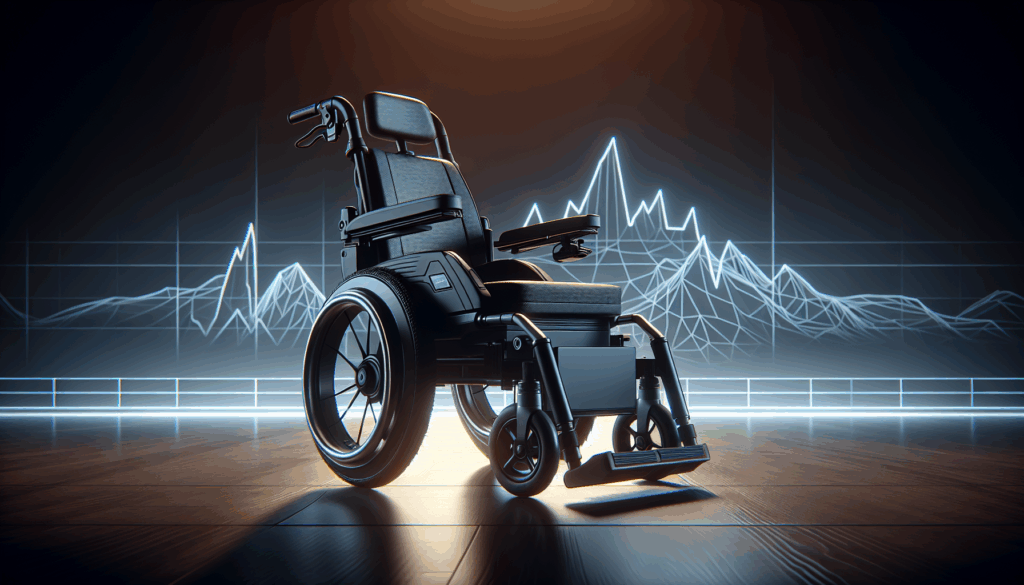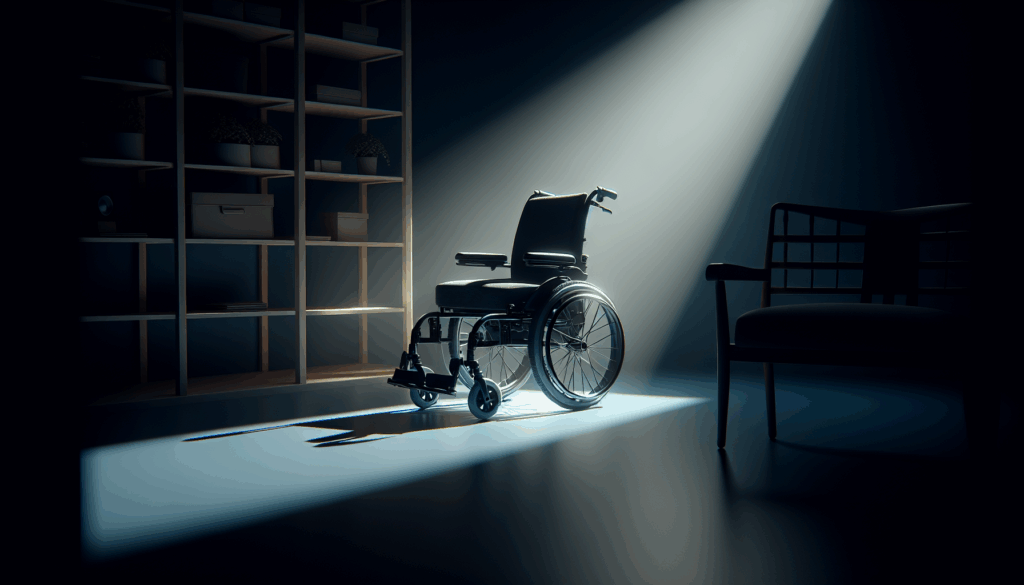
In the realm of mobility solutions, electric wheelchairs have revolutionized the way individuals navigate their environments, and the introduction of carbon fibre frames has taken this innovation to new heights. The eDegree EW3 Carbon Fibre Electric Wheelchair exemplifies how advanced materials not only enhance performance but also offer a remarkable strength-to-weight advantage. Weighing only 12.5 kg with the battery included, this cutting-edge wheelchair combines durability with sleek design, making it easier for users to maneuver without sacrificing stability or support. As we delve into the strengths of carbon frames, we will explore how these benefits translate to better mobility, efficiency, and user experience in the world of electric wheelchairs.
Understanding Carbon Fibre Technology in Electric Wheelchairs
Understanding Carbon Fibre Technology in electric wheelchairs offers insights into why this material is increasingly preferred for modern mobility solutions. Carbon fibre is celebrated for its impressive strength-to-weight ratio, significantly enhancing the overall performance and portability of electric wheelchairs. For instance, the eDegree EW3 Carbon Fibre Electric Wheelchair weighs only 12.5kg with the battery included, making it remarkably lightweight without compromising on strength. This characteristic is particularly beneficial for users who may need to transport their wheelchair frequently or manage navigating tight spaces while retaining maximum efficiency in mobility.
Furthermore, the robust design allows for a maximum load capacity of up to 160kg, a testament to the material’s capability to endure rigorous daily use while maintaining structural integrity and durability. The integration of carbon fibre does not merely contribute to a reduction in weight; it also enhances the overall riding experience. With advanced features such as a dual motor providing 24V 250W of power and a customizable 5-speed mode, users can easily adjust their performance according to their individual needs.
Additionally, the eDegree EW3’s breakthrough technology, including a Bluetooth remote joystick for tactile ease, showcases the synergy of innovative materials and user-friendly design that transcends traditional wheelchair limitations. Individuals seeking an electric wheelchair will find that the benefits of carbon fibre greatly cater to their mobility demands while providing unparalleled convenience and reliability.
Comparing Weight Factors: Carbon Fibre vs. Traditional Materials
When considering electric wheelchairs, the weight and strength of the frame are vital factors that impact both performance and user experience. Carbon fibre, known for its ultra-lightweight properties and exceptional strength, has become a game-changer in electric wheelchair design. For instance, the eDegree EW3 Carbon Fibre Electric Wheelchair boasts a remarkable weight of just 12.5kg, including its lithium battery. This lightweight construction not only enhances maneuverability but also allows for greater battery efficiency, resulting in a commendable range per charge of 12-13 km. In contrast, traditional materials such as steel or aluminum generally result in heavier frames, which can compromise speed and agility during operation.
The advantage of the carbon fibre frame is apparent in the way it supports a maximum load of up to 160kg while maintaining a low weight profile, ultimately leading to an improved user experience. Furthermore, the high strength-to-weight ratio of carbon fibre allows for innovative designs and features that enhance usability. The dual motor system in the eDegree EW3, paired with its 5-speed mode, enables users to navigate various terrains and conditions with ease. The climbing ability of less than 10° further emphasizes the efficiency that comes with a lightweight frame.
This comparison between carbon fibre and traditional materials clearly highlights carbon’s superiority, making it a preferred choice for manufacturers aiming to create an electric wheelchair that balances robustness with effortless ease of use.
The Impact of Weight on Wheelchair Performance and Portability
The weight of an electric wheelchair can significantly affect its overall performance and portability. A lighter wheelchair, such as the eDegree EW3 Carbon Fibre Electric Wheelchair, which weighs only 12.5 kg including the battery, provides users with improved maneuverability and ease of transportation. This is particularly beneficial for individuals who need to navigate tight spaces or carry their wheelchair in a vehicle, as a lighter frame reduces strain and effort during these tasks. A reduced weight allows the wheelchair to achieve better speeds and acceleration, enhancing the user experience while navigating various terrains.
Moreover, the portable design does not compromise the durability of the wheelchair. The use of aerospace-grade carbon fibre means that the eDegree EW3 boasts remarkable strength despite its lightweight build. This material not only contributes to the wheelchair’s impressive load capacity of up to 160 kg but also allows users to maintain stability and safety while using it. Ultimately, the impact of weight on wheelchair performance is profound; lighter electric wheelchairs offer unmatched versatility and ease of use, making them an invaluable tool for users seeking independence and freedom in mobility.

Strength Characteristics of Carbon Fibre in Electric Wheelchair Design
The strength characteristics of carbon fibre make it an exceptional choice for electric wheelchair design, particularly when considering performance and user’s comfort. Carbon fibre boasts a high strength-to-weight ratio, which means that despite being lightweight, it is incredibly strong and durable. This is crucial for electric wheelchairs like the eDegree EW3, which balances a maximum load capacity of 160kg while weighing only 12.5kg. The aerospace-grade carbon fibre frame not only enhances the wheelchair’s structural integrity but also allows for effortless maneuverability, which is essential for users who require mobility solutions that do not compromise on reliability or ease of use.
Moreover, the low weight of carbon fibre significantly contributes to the overall efficiency of electric wheelchairs. The eDegree EW3, powered by a dual motor system and offering speeds of up to 8km/h, relies on its lightweight design to maximize battery performance. With a range of approximately 12-13km per charge, the lithium battery charges in just 6-8 hours, making this electric wheelchair an optimal choice for daily use. By integrating carbon fibre into its design, manufacturers can create a product that not only meets the diverse needs of users but also promotes prolonged usage and convenience, underscoring the transformative potential of innovation in mobility solutions.
Real-World Benefits: Enhanced Mobility and User Experience
The eDegree EW3 Carbon Fibre Electric Wheelchair exemplifies how advanced materials like carbon fibre significantly enhance mobility and user experience. Weighing just 12.5 kg, this wheelchair allows users to navigate various terrains with ease and efficiency. The lightweight design ensures that handling is effortless, whether indoors or outdoors, giving users the confidence to explore their surroundings without the fatigue that often comes with heavier models. Coupled with a robust maximum load capacity of 160 kg, this electric wheelchair caters to the diverse needs of users, prioritizing both strength and reliability in its construction.
Moreover, the eDegree EW3’s dual motor system combined with a 5-speed mode contributes to its incredible forward and reverse speeds, reaching up to 8km/h. This range empowers users to move swiftly and safely, whether they’re commuting or enjoying leisure activities. With a climbing ability of less than 10 degrees, it can easily manage inclines, further enhancing its usability in real-world settings. The lithium battery allows for a range per charge of 12-13 km, enabling extended outings without the worry of frequent recharging. All of these features culminate in an electric wheelchair that not only prioritizes mobility but also enhances the overall user experience, making it a remarkable option for those seeking independence and freedom of movement.
Case Study: eDegree EW3 Carbon Fibre Electric Wheelchair
The eDegree EW3 Carbon Fibre Electric Wheelchair embodies the revolutionary strength-to-weight advantage that carbon frame technology brings to mobility solutions. Weighing only 12.5 kg, this electric wheelchair combines a lightweight design with robust capabilities. The aerospace-grade carbon fibre frame not only enhances portability but also contributes to the wheelchair’s impressive load-bearing capacity of 160 kg. This unique combination of strength and lightness allows users to experience exceptional maneuverability without sacrificing stability, making it an ideal choice for individuals seeking independence in their daily lives.
Moreover, the eDegree EW3 showcases remarkable performance with its powerful dual motor system, providing a forward and reverse speed of up to 8 km/h. Equipped with a 24V lithium battery, the wheelchair offers a range of 12-13 km per charge, allowing users to comfortably navigate their environments without the worry of frequent recharging. The wheelchair’s climbing ability of less than 10 degrees further emphasizes its capability to conquer varied terrains. With features like a Bluetooth remote joystick and multiple speed modes, the eDegree EW3 sets a new standard in electric wheelchairs, proving that innovation in frame materials can significantly enhance user experience and mobility.
Future Trends: Advancements in Electric Wheelchair Materials and Design
The electric wheelchair industry is witnessing a significant transformation as manufacturers increasingly adopt advanced materials and innovative designs. One notable trend is the utilization of aerospace-grade carbon fiber in the construction of electric wheelchairs like the eDegree EW3. This material is not only incredibly lightweight but also exhibits a high strength-to-weight ratio, allowing users to enjoy a more efficient and maneuverable experience. With a weight of just 12.5kg including the battery, the eDegree EW3 empowers users with enhanced mobility and independence, making daily activities easier to navigate.
The shift toward carbon fiber frames is also driven by the performance capabilities they enable. With dual motors providing 0-8 km/h speeds, a climbing ability of less than 10° degrees, and a respectable range of 12–13 km per charge, these electric wheelchairs are exemplifying the future of personal mobility. Additionally, innovations such as Bluetooth remote control and customizable speed modes further enhance the user experience. As manufacturers continue to embrace these advancements, we can expect electric wheelchairs to become lighter, more durable, and more versatile, paving the way for a new era in personal transport solutions.

Final Thoughts on Carbon Frames in Electric Wheelchairs
In conclusion, the integration of carbon fibre frames in electric wheelchairs represents a significant step forward in design and functionality. The exceptional strength-to-weight ratio of carbon fibre not only enhances the mobility and performance of the eDegree EW3 Electric Wheelchair but also contributes to user comfort and ease of maneuverability. Weighing only 12.5 kg including the battery, this wheelchair showcases the benefits of advanced materials, allowing users to experience a liberated lifestyle without compromising on safety and durability.
Moreover, with features such as a long-range battery, a robust dual motor, and an adjustable speed mode, the eDegree EW3 is engineered to cater to diverse user needs while ensuring an enjoyable ride. Priced at RM 6,500, it offers an affordable solution for those seeking efficiency and ease of use in their mobility aids. Ultimately, carbon fibre technology is shaping the future of electric wheelchairs, proving that innovation can indeed pave the way for improved quality of life.
